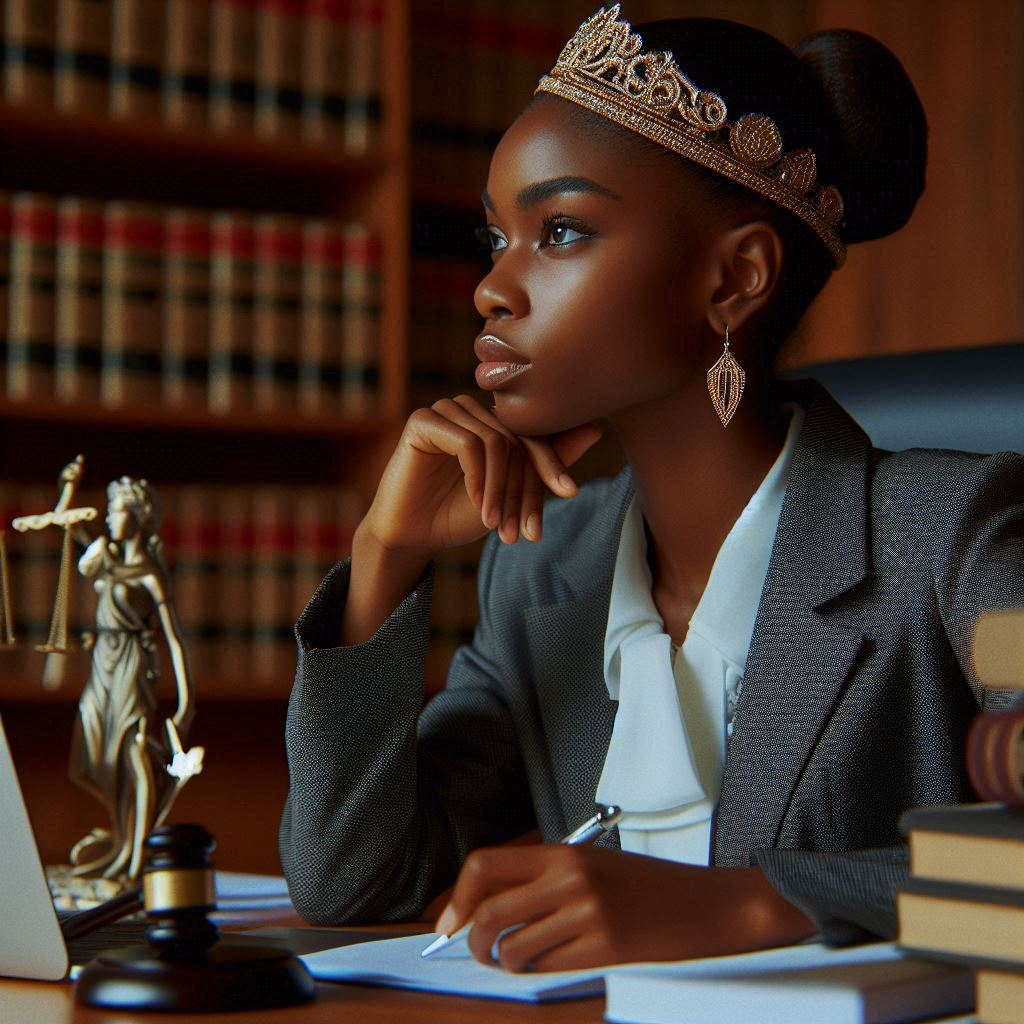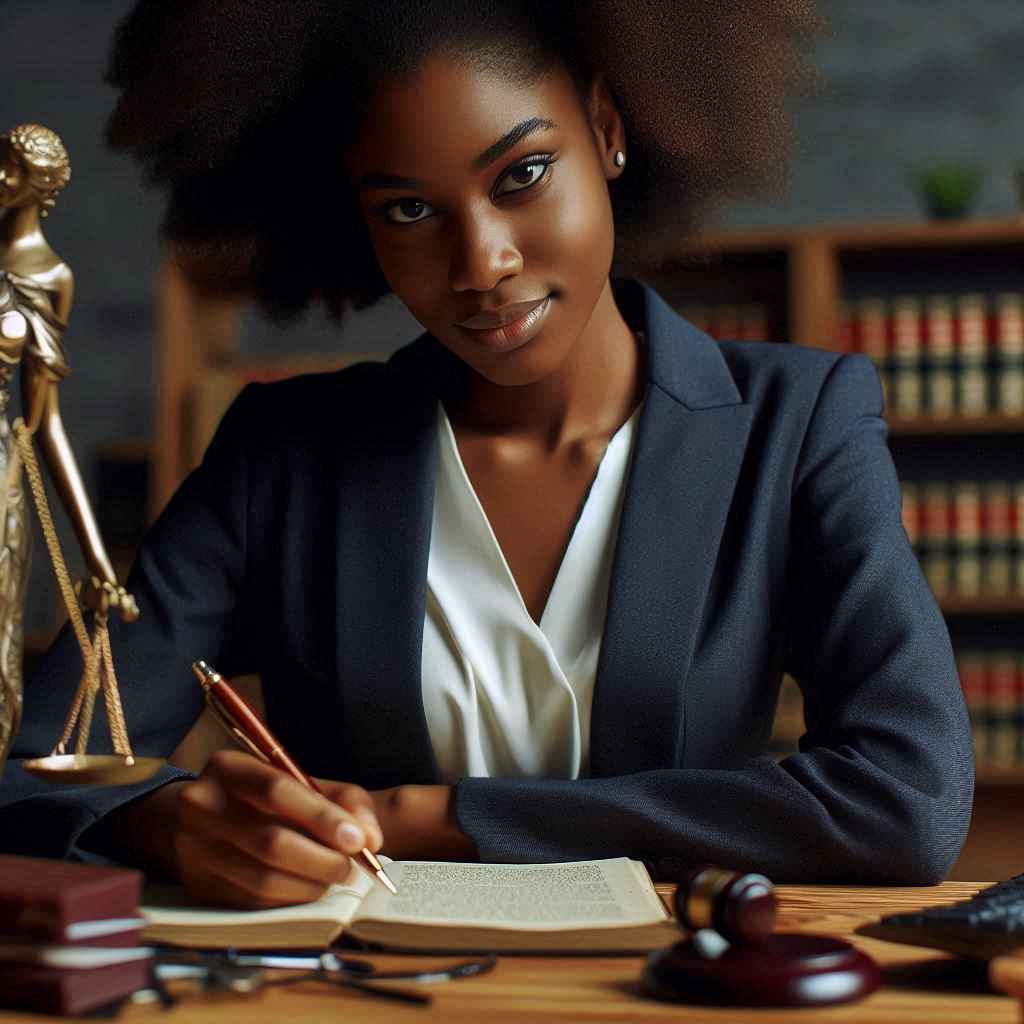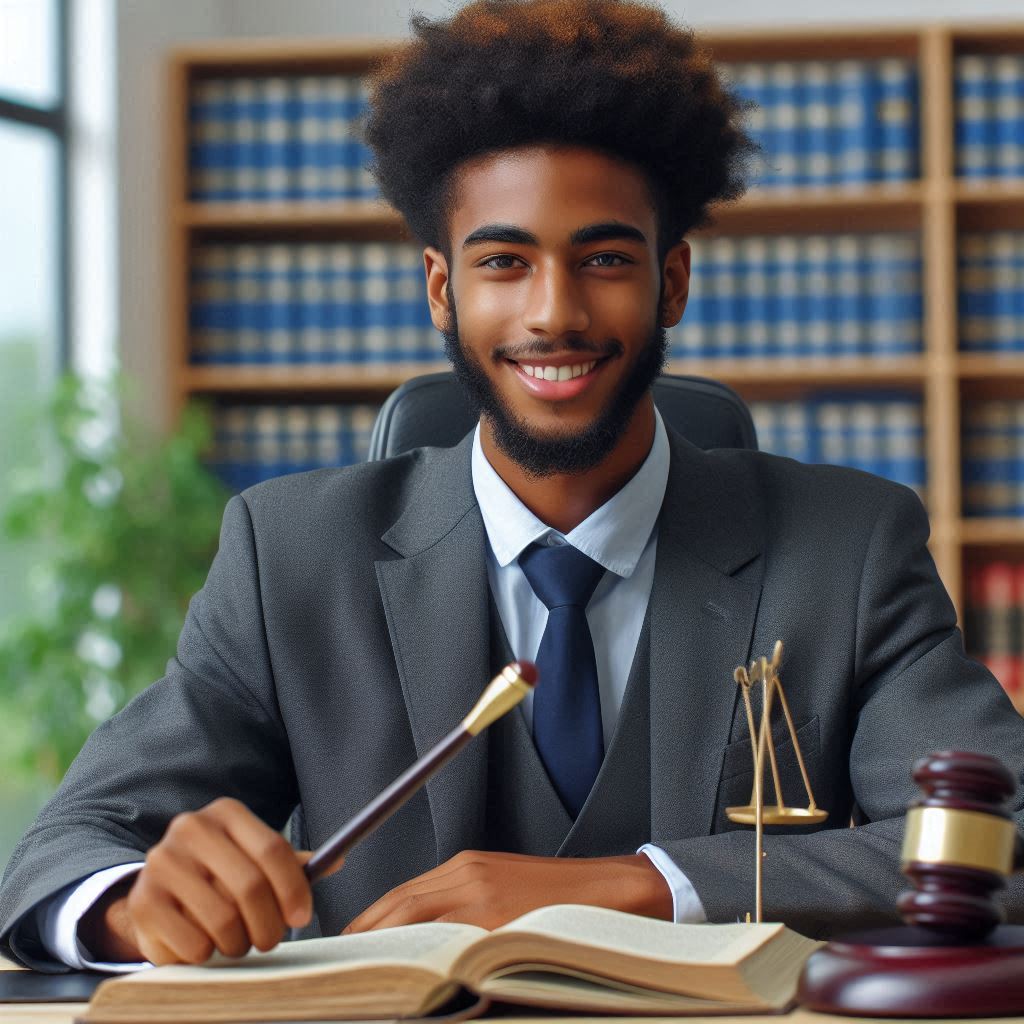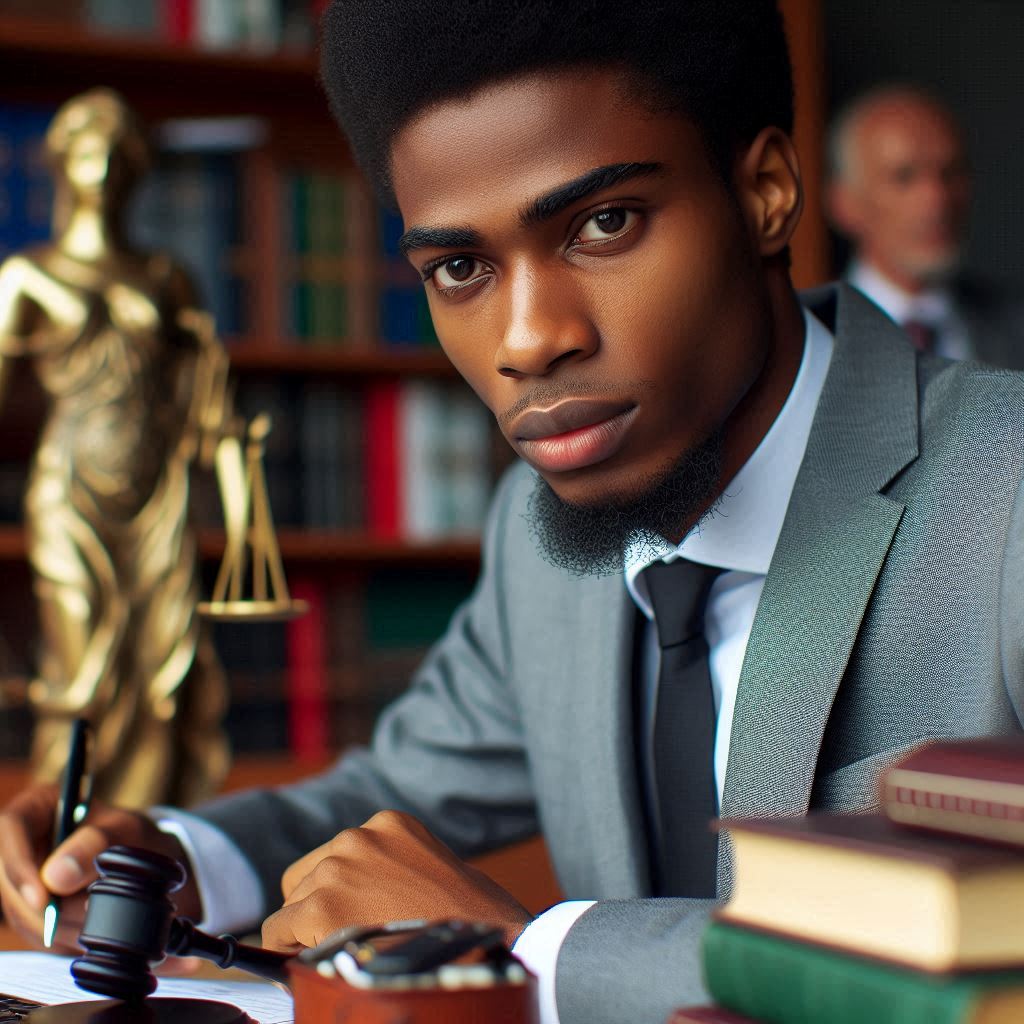Introduction
Civil rights protection in Nigeria constitutes a framework safeguarding fundamental freedoms and liberties for every citizen.
These rights encompass various aspects such as freedom of expression, association, religion, and the right to equality before the law.
Nigerian civil law emphasizes protecting civil rights to preserve individual dignity and promote equality.
The Nigerian Constitution enshrines these protections, supported by legal statutes and international conventions.
The significance of civil rights protection extends beyond legal frameworks; it underpins societal harmony, political stability, and economic development.
Upholding these rights fosters accountability in governance, ensuring that authorities act within legal boundaries and respect citizens’ rights.
In Nigeria’s diverse and dynamic socio-political landscape, civil rights protection serves as a crucial mechanism for promoting justice and fairness.
It empowers individuals to participate actively in public discourse, hold institutions accountable, and contribute to the country’s democratic process.
By safeguarding civil rights, Nigerian civil law creates a framework where citizens can live and interact freely, fostering a culture of respect, tolerance, and mutual understanding.
These rights establish a foundation for a cohesive society, celebrating diversity and upholding individual liberties as essential pillars of national progress.
Overview of Nigerian Constitution
The Nigerian Constitution serves as the cornerstone of civil rights protection within the country’s legal framework. Enacted in 1999, it guarantees fundamental human rights essential for the dignity and well-being of all Nigerians.
Fundamental Human Rights Enshrined in the Nigerian Constitution
The Nigerian Constitution recognizes a broad spectrum of fundamental human rights. These rights include but are not limited to:
- Right to Life: Every individual’s right to life is protected, except in accordance with due process of law.
- Right to Dignity of Human Person: Upholds the dignity of every Nigerian and prohibits torture or inhuman treatment.
- Right to Personal Liberty: Protects against unlawful detention and ensures freedom of movement.
- Right to Fair Hearing: Guarantees fair trial procedures and safeguards against arbitrary justice.
- Right to Privacy: Protects individuals from unwarranted intrusion into their private lives.
- Freedom of Thought, Conscience, and Religion: Ensures the right to hold beliefs and practice religion freely.
- Freedom of Expression and the Press: Protects freedom of speech and press freedom.
- Right to Peaceful Assembly and Association: Allows citizens to assemble peacefully and form associations.
- Right to Education: Ensures access to basic education for all Nigerian children.
How Civil Rights are Protected by Law
Civil rights in Nigeria are protected through a combination of constitutional provisions, legislation, and judicial enforcement.
The Nigerian Constitution provides the primary legal framework for these protections, establishing the fundamental rights and freedoms that all citizens are entitled to enjoy.
Legislation supplements constitutional provisions to specify the scope and application of rights in various contexts. For example, the Criminal Code Act and the Penal Code Act outline offenses and penalties related to violations of personal liberties and freedoms.
The judiciary plays a crucial role in upholding civil rights by interpreting laws, adjudicating disputes, and ensuring government compliance with constitutional provisions. Nigerian courts have the authority to declare any law inconsistent with the Constitution as null and void.
Furthermore, international human rights treaties ratified by Nigeria, such as the Universal Declaration of Human Rights and the African Charter on Human and Peoples’ Rights, provide additional frameworks for protecting civil rights.
These treaties influence Nigerian law and policy, reinforcing the commitment to global human rights standards.
Read: Legal Challenges for Startups in Nigeria
Statutory Provisions for Civil Rights Protection
When it comes to civil rights protection in Nigeria, there are specific laws and statutes in place to ensure that individuals are not deprived of their rights. These laws serve as a foundation for upholding and enforcing civil liberties across the country.
Analysis of Specific Laws and Statutes
- The Nigerian Constitution of 1999: This document guarantees fundamental human rights to all citizens.
- Anti-Discrimination Acts: Laws are in place to prevent discrimination based on gender, religion, ethnicity, disability, etc.
- The Freedom of Information Act: This law ensures transparency and accountability in governance.
- The Child Rights Act: Protects the rights of minors and prohibits child labor, trafficking, and abuse.
These laws protect individuals’ rights and ensure fair treatment under the law. They outline specific rights and freedoms, providing a legal framework for citizens to seek redress for violations.
Examination of Legal Mechanisms for Enforcing Civil Rights
Enforcing civil rights in Nigeria involves a combination of legal and judicial mechanisms aimed at upholding the rights of individuals and ensuring that justice is served. Some of the mechanisms include
- The Nigerian Human Rights Commission: This independent body investigates human rights abuses and provides remedies to victims.
- The Judiciary: Courts adjudicate cases involving civil rights violations and provide legal remedies to aggrieved parties.
- Public Interest Litigation: Civil society organizations can file lawsuits on behalf of individuals whose rights have been violated.
- Legal Aid: Provides free legal representation to indigent individuals who cannot afford legal services.
These mechanisms protect civil rights in Nigeria. They ensure individuals have access to justice when their rights are infringed upon.
By holding perpetrators accountable and providing remedies to victims, these mechanisms play a critical role in upholding the rule of law and promoting justice.
Read: Legal Framework for NGOs in Nigeria
Challenges in Civil Rights Protection
Civil rights violations in Nigeria have left a lasting impact on individuals and society, highlighting significant challenges in upholding fundamental freedoms and protections.
Notable Cases where Civil Rights Have Been Violated in Nigeria
One prominent case involves the frequent detention of activists under laws that restrict freedom of expression and assembly. These actions often draw international condemnation and calls for legal reform to protect civil liberties more effectively.
Additionally, the marginalization and discrimination against minority ethnic and religious groups persist despite constitutional guarantees of equality. Such injustices perpetuate social divisions and undermine national unity.
Gender-based violence is another critical concern. Women and girls frequently face abuse and discrimination. Despite legislative efforts to safeguard their rights, these violations continue to hinder gender equality and social progress.
Impact of These Violations on the Victims and Society as a Whole
Victims of civil rights violations experience profound personal and psychological effects, including trauma, fear, and loss of trust in authorities.
They often struggle to seek justice and access essential services, perpetuating cycles of vulnerability and marginalization.
At a societal level, these violations erode public trust in institutions and the rule of law. They fuel discontent and resistance against oppressive practices, undermining efforts to promote democracy and inclusive governance.
Moreover, civil rights abuses contribute to broader social unrest and political instability. They hinder economic development by fostering an environment of insecurity and inequality, discouraging investment and social progress.
Response and Advocacy Efforts
In response to these challenges, civil society organizations and human rights advocates play crucial roles in documenting abuses, providing legal assistance to victims, and advocating for policy reforms.
Their efforts amplify the voices of marginalized groups and hold perpetrators accountable for their actions.
Efforts to address civil rights violations include raising awareness, conducting advocacy campaigns, and engaging with policymakers to strengthen legal protections and ensure accountability.
International human rights bodies also provide support and scrutiny to uphold global standards of human rights in Nigeria.
Read: How to Become a Senior Advocate of Nigeria
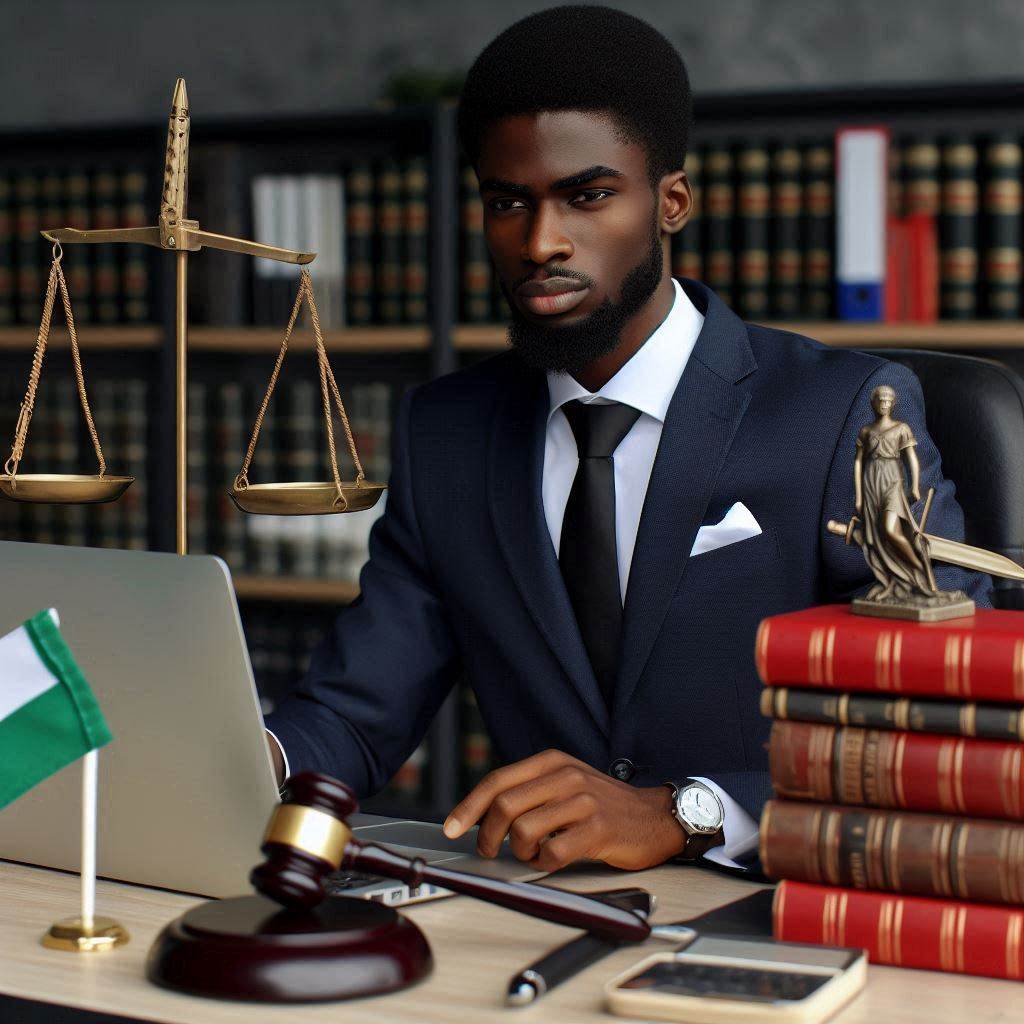
Case Studies on Civil Rights Violations
Civil rights violations in Nigeria have had profound impacts on individuals and society, highlighting ongoing challenges in upholding fundamental freedoms.
Notable Cases where Civil Rights Have Been Violated in Nigeria
One notable case involves the detention of activists under restrictive laws limiting freedom of expression. This has sparked widespread criticism and calls for reform.
Another significant instance is the marginalization of minority groups, despite constitutional protections. Discrimination based on ethnicity, religion, or disability continues to undermine equality and social cohesion.
In the realm of gender rights, cases of violence against women and girls persist, despite legislative efforts to protect them. These violations perpetuate cycles of injustice and gender inequality.
Impact of These Violations on the Victims and Society as a Whole
Victims of civil rights violations often endure trauma, fear, and loss of livelihood. They struggle to trust institutions and seek justice, compromising their well-being and sense of security.
Societally, these violations erode trust in governance and the rule of law. They fuel social unrest, undermine democratic principles, and hinder national development efforts.
The ripple effects extend beyond individual cases, shaping public perception and discourse on human rights. They underscore the urgency of addressing systemic issues and promoting accountability within institutions.
In response, civil society organizations and human rights advocates play crucial roles in documenting abuses, providing legal aid, and advocating for policy reforms. Their efforts amplify voices of marginalized groups and push for systemic change.
In review, addressing civil rights violations in Nigeria requires a concerted effort to uphold constitutional guarantees and protect vulnerable populations.
By holding perpetrators accountable and supporting victims, we can foster a more just and inclusive society.
It is imperative for stakeholders, including government, civil society, and the international community, to collaborate in safeguarding human rights and promoting dignity for all Nigerians.
We can mitigate the impact of violations through education, advocacy, and legal reform.We advance towards a future where everyone respects and protects civil rights.
Read: Jurisprudence and Legal Theory in Nigeria
Delve into the Subject: Salary Expectations for Paralegals in Nigeria
Uncover the Details: Common Law’s Perspective on Civil Rights
Civil Rights Advocacy and Activism
Overview of civil rights organizations and activists in Nigeria
Civil rights organizations in Nigeria include the Civil Liberties Organization (CLO), Human Rights Watch, and the Women’s Rights Advancement and Protection Alternative (WRAPA).
These organizations work tirelessly to ensure the protection of civil rights in Nigeria, advocating for the rights of marginalized groups such as women, children, and the disabled.
Activists in Nigeria play a crucial role in advocating for civil rights by bringing attention to issues of injustice and discrimination.
Some notable activists in Nigeria include Femi Falana, a human rights lawyer, and Aisha Yesufu, a prominent advocate for gender equality and social justice.
Transform Your Career with Expert Guidance
Get personalized mentorship consulting that’s tailored to your unique path. Our expert advice is actionable and exclusive.
Get StartedThe role of advocacy in promoting and protecting civil rights
Advocacy plays a vital role in promoting and protecting civil rights in Nigeria by raising awareness about human rights violations and injustices.
Civil rights advocates work to hold the government and other institutions accountable for their actions and policies that infringe upon human rights.
Through advocacy efforts, civil rights organizations and activists are able to influence policy changes that result in the protection and promotion of civil rights for all Nigerians.
Advocacy also helps to empower marginalized communities to have a voice and demand equality and justice in their society.
Essentially, civil rights advocacy and activism are essential components in the fight for justice and equality in Nigeria. These efforts work to ensure that all Nigerians have their fundamental rights respected and protected.
Gain More Insights: Key Legal Texts for Nigerian Jurisprudence Students
Conclusion
Lastly, the protection of civil rights under Nigerian Civil Law is fundamental to ensuring a fair and just society.
Throughout this blog post, we have delved into several critical aspects of civil rights, including freedom of expression, assembly, and equality before the law.
These rights form the cornerstone of a democratic society, safeguarding individual liberties and promoting social justice.
A call to action is imperative for all citizens to actively engage in upholding and defending these rights.
By staying informed about our rights and responsibilities, we empower ourselves to hold authorities accountable and demand transparency in governance.
It is through collective effort that we can create a society where every individual enjoys equal opportunities and protections under the law.
Let us advocate for policies and practices that uphold human dignity, foster inclusivity, and promote tolerance.
By standing together in defense of civil rights, we contribute to building a Nigeria where justice, equality, and respect for fundamental freedoms prevail.
Together, we can shape a brighter future where every voice is heard and every right is respected.

